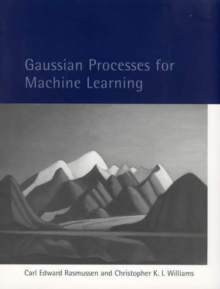
Causation, Prediction, and Search PDF
by Peter Spirtes, Clark Glymour, Richard Scheines
Part of the Adaptive Computation and Machine Learning series series
Description
The authors address the assumptions and methods that allow us to turn observations into causal knowledge, and use even incomplete causal knowledge in planning and prediction to influence and control our environment.
What assumptions and methods allow us to turn observations into causal knowledge, and how can even incomplete causal knowledge be used in planning and prediction to influence and control our environment? In this book Peter Spirtes, Clark Glymour, and Richard Scheines address these questions using the formalism of Bayes networks, with results that have been applied in diverse areas of research in the social, behavioral, and physical sciences.
The authors show that although experimental and observational study designs may not always permit the same inferences, they are subject to uniform principles. They axiomatize the connection between causal structure and probabilistic independence, explore several varieties of causal indistinguishability, formulate a theory of manipulation, and develop asymptotically reliable procedures for searching over equivalence classes of causal models, including models of categorical data and structural equation models with and without latent variables.
The authors show that the relationship between causality and probability can also help to clarify such diverse topics in statistics as the comparative power of experimentation versus observation, Simpson's paradox, errors in regression models, retrospective versus prospective sampling, and variable selection.
The second edition contains a new introduction and an extensive survey of advances and applications that have appeared since the first edition was published in 1993.
Information
-
Download - Immediately Available
- Format:PDF
- Pages:568 pages
- Publisher:The MIT Press
- Publication Date:29/01/2001
- Category:
- ISBN:9780262284158
Other Formats
- PDF from £93.08
Information
-
Download - Immediately Available
- Format:PDF
- Pages:568 pages
- Publisher:The MIT Press
- Publication Date:29/01/2001
- Category:
- ISBN:9780262284158










